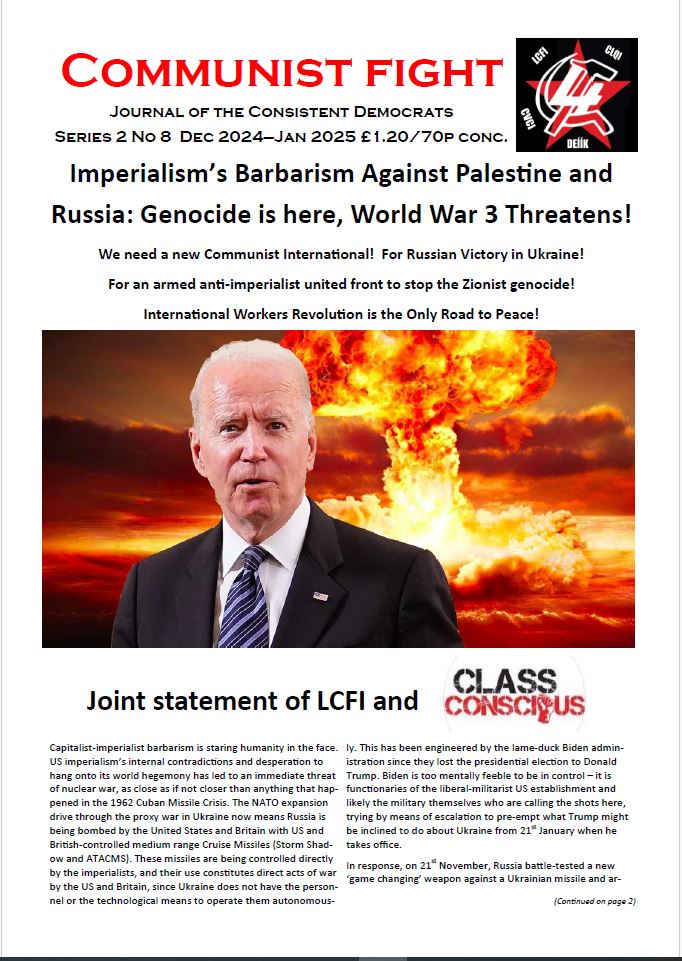Statement of the Liaison Committee for the Fourth International
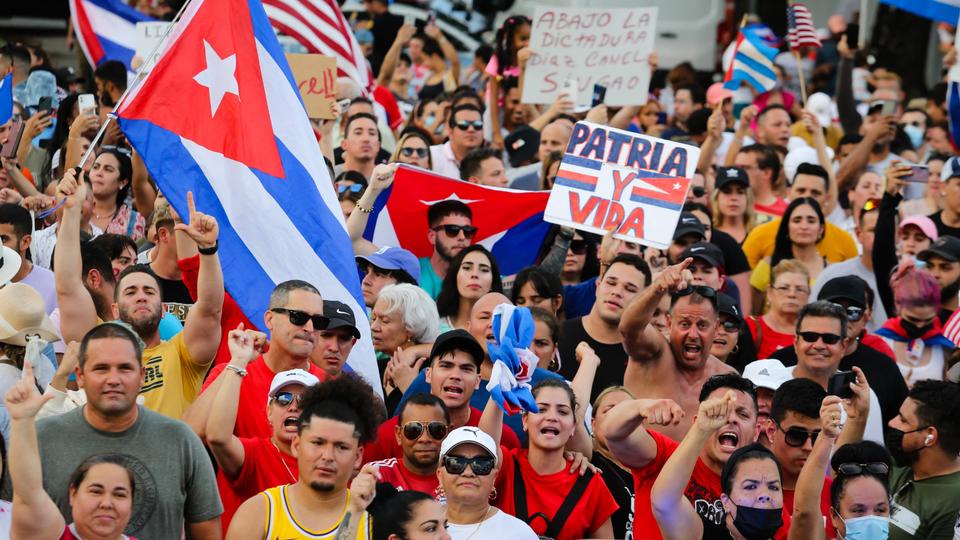
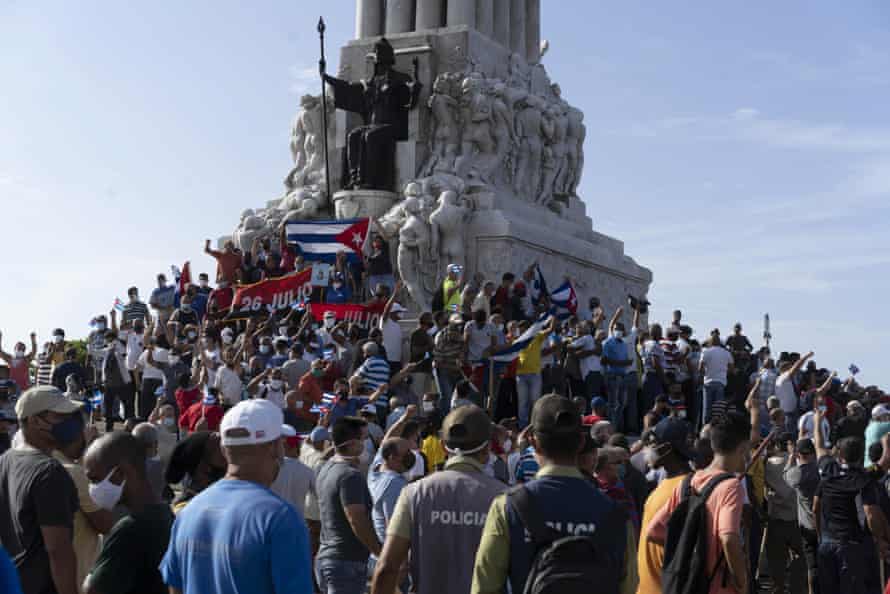
1. The Geopolitical US counter-offensive
In the same week, two unprecedented events took place in the Caribbean. Firstly, there was the murder of the Haitian President, Moïse, which created social chaos in the country. Then there were synchronized protests in multiple cities in Cuba and the United States against the Cuban government.
In both cases, the much of international capitalist media is invoking humanitarian intervention. This happened a few days after the visit of the “number 1” of the CIA, William Burns, to the governments of Ivan Duque and Jair Bolsonaro, agents of imperialism that have been confronted by massive popular struggles. The US policy of continental domination is facing other serious challenges from the pro-Eurasian turn of the Bukele government in El Salvador, and the electoral victory of the left under Pedro Castillo in Peru.
After the Bahamas, 21 km from Cuba, Haiti has the closest territory to Cuba at just 77 km. Of course, therefore, without forgetting Haiti’s resources, such as its bauxite and gold reserves. It is possible US imperialism, in its ‘progressive’ phase under Biden/Harris is seeking to open an outpost for threatening Cuba via Haiti with the well-worn justification of humanitarian intervention. Though the actual operation to murder a US-backed president looks like an operation by an exiled domestic rival of Moïse, using wayward Colombian mercenary forces that were available on the market, nevertheless the US is not inclined to miss an opportunity to exploit such an event for its own geo-strategic advantage:
“Amidst the social and political crisis that Haiti is currently facing, following the assassination of President Jovenel Moïse, that country’s interim government asked President Joe Biden to send a commission of US officials to support the transition.
The Pentagon itself acknowledges that the mercenary agents who murdered Moise were Colombians trained by the US military, direct informants for the DEA and the FBI. The operation is very similar to what was carried out by mercenaries who in May 2020 also left Colombia to try to invade Venezuela by boats. At the time, the invaders were arrested and disarmed by Venezuelan fishermen. It is no secret that Colombia is the most important US military platform in South America, especially against Venezuela and Cuba.
The US Head of State has indicated that he will send the delegation to the Caribbean country, which will also include US troops, investigators and security personnel, to ensure public order, which has been shaken for several months, first by protests against Moise himself and then for everything that resulted from his death. “
https://www. Semana.com/mundo/articulo/estados-unidos-envio-una-comision-a-haiti-por-solicitud-del-gobierno-interino/202143/
In other words, taking advantage of the political crisis caused by the assassination of Jovenel Moïse. The provisional government that succeeds him requests the intervention of US imperialism, to which it responds in the affirmative and includes sending troops and investigators. Therefore, it is clear that a new imperialist intervention in Haiti is being prepared by its local agents.
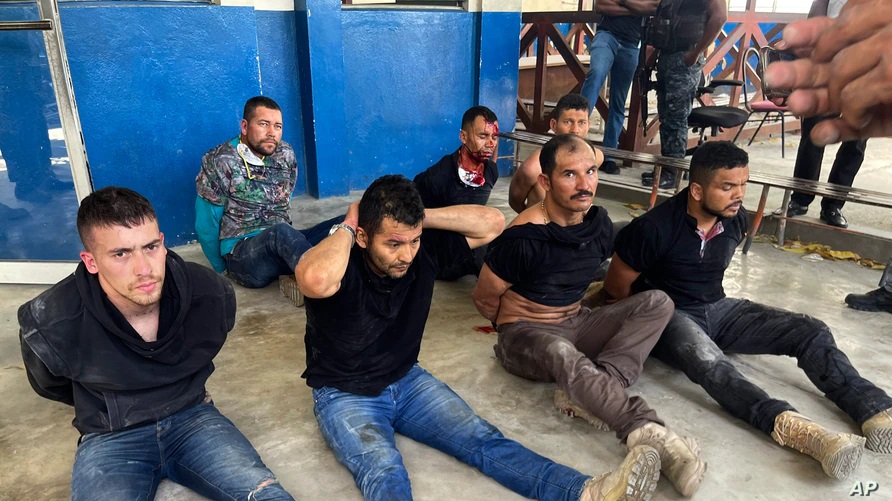
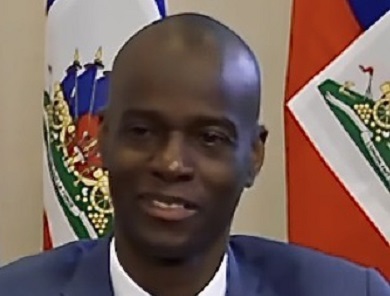
This is happening in Haiti at the same time as the gusano mobilizations are taking place in Cuba to start a hybrid war against the Cuban workers’ state. This is fortuitous, to say the least, and may not be coincidental. Certainly, the effect is the same. The Cuban issue, and the exploitation of the Haitian crisis must therefore be seen as parts of an attempt by US imperialism under Biden-Harris to seize control over its immediate geostrategic area of influence: the Caribbean and Central America.
It should be noted that the gusano mobilizations in Cuba are based on a hybrid war operation launched through social networks. One key figure is an Argentinian, Agustín Antonetti, who is part of the right-wing Libertad Foundation, which has already participated in previous operations that fuelled the right-wing coup in Bolivia against the left populist Evo Morales, and operations against the liberal-populist government of López Obrador in Mexico. (see: http://www.cubadebate.cu/noticias/2021/07/12/investigacion-confirma-la-perversa-operacion-de-redes-sociales-contra-cuba-lanzada-desde-el-exterior/)
It is the duty of all those who claim to be popular and working-class fighters to mobilize against the imperialist manoeuvres in the Caribbean that today target Cuba and Haiti.
As part of its continental offensive, the CIA met earlier this month with Bolsonaro, the high command of the Brazilian armed forces and the Brazilian Intelligence Agency to provide guidance. William Burns had paid a visit with a similar purpose to Colombia, which, like Brazil, has been shaken by mass working class opposition demonstrations.
It must be said that this represents a change in the attitude of the Biden-Harris government. In the immediate aftermath of their first coming to power in January during a deep conflict that culminated in the Trumpists’ invasion of Capitol Hill, the Biden-Harris government sought to displace leaders in Latin America who had been Trump’s puppets. However, the White House had to revise that policy after it backfired in El Salvador. Under threat of being overthrown by US pressure, Salvadoran President Bukele immediately allied with China and Russia on the international stage. (see http://tmb1917.blogspot.com/2021/05/el-salvador.html)
It is in this context, after the turn of Bukele, that the Biden-Harris government turned about after its failed manoeuvre in El Salvador, and sought to deepen relations with former Trump puppets, such as Duque and Bolsonaro, and use them in its current continental offensive.
The electoral defeat of the right in Peru was the qualitative leap in this regard after the setback in El Salvador, forcing the White House to no longer want to get rid of the Trumpists, but to guide them, to preserve them from popular fury, and through them, contest and defend their Latin American semi-colonies against the influence of China, Russia, Venezuela, and Cuba. It is worth remembering that the setbacks of imperialism began with the failure of the coup attempts in Venezuela and the reversal of the coup in Bolivia in 2020.
As part of this offensive is the manipulation of the gusano opposition inside Cuba, the feeding of interventionism in Haiti, the deepening of relations between US imperialism and its semi-colonial collaborators in Brazil. Also part of this offensive is the policy of pressure and attrition against Pedro Castillo’s electoral victory in Peru, to prevent the Pacific becoming the South American silk route, enabling a transoceanic route between Argentina and Peru, passing through Bolivia, three countries that distanced themselves from the influence of the US and approached China and Russia in their trade and diplomatic relations.
2. Defend the Cuban Revolution!
Particularly important in this situation is the defence of the Cuban Revolution. The upheaval in Cuba is a result of gusano pro-US forces exploiting a degree of social discontent flowing from the decades of US blockade against Cuba, social discontent that has been exacerbated by the pandemic. Cuba has some of the best medical facilities in the world, because of the complete socialisation of its healthcare system. Its record on infant mortality, a key index of social progress, has often been better than that of the United States, which is incredible given that the US is the wealthiest country in the world and Cuba is just a fairly poor, offshore island nation with comparatively meagre resources.
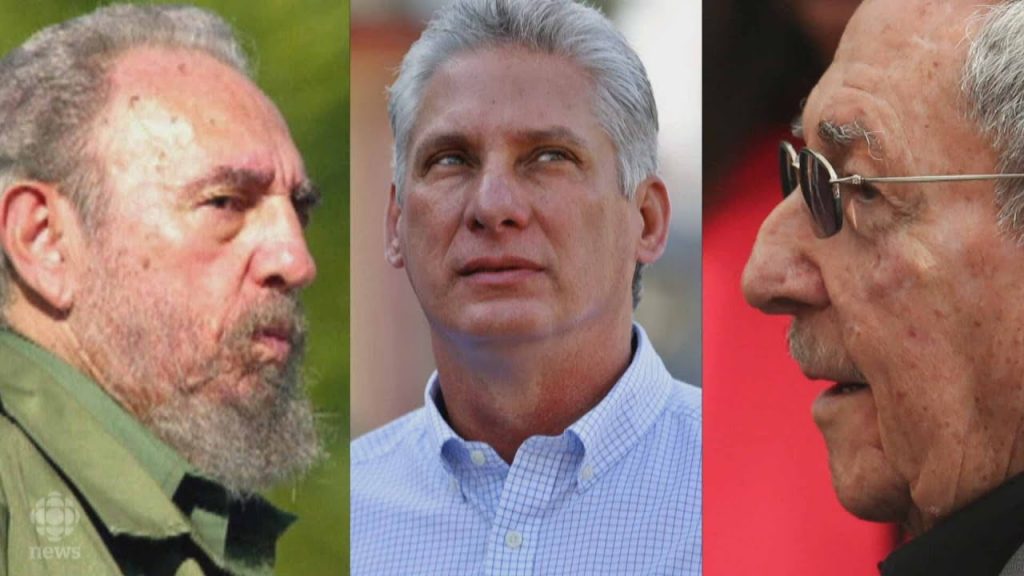
This is because, unlike every other leftist and left-talking government in Latin America, in 1960-61 Cuba expropriated its bourgeoisie and consolidated an elementary degree of economic planning as the basis of its economy, creating a deformed workers state by doing so. It was created by an alliance of the left-liberal nationalist July 26th Movement (M-26) guerrilla movement and sympathetic working-class elements of the Popular Socialist Party, the pro-Moscow CP in Cuba at the time, in struggle against the venal pro-US Batista dictatorship. The general strike that finally toppled Batista at the end of 1958 caused virtually his entire army to flee, destroying the capitalist state itself and giving the July 26th Movement guerrillas a monopoly of armed power, which in an accelerating conflict with US imperialism and its supporters in the Cuban bourgeoisie over the next two years, gave them unprecedented freedom to make inroads into capitalist property, which over those two years they were driven, purely to defend themselves, to abolish.
We regard that expropriation as the greatest gain that the working class has so far achieved in the Western Hemisphere, and its defence the highest duty of class-conscious workers around the world.
It has survived great difficulties. For more than 30 years Cuba’s alliance with the USSR provided it with a means to counteract imperialism’s blockade against it. But with the collapse of the USSR and the Soviet bloc in 1991 it was deprived of that aid. It went through a ‘special period’ in the 1990s as a result, of great hardship and suffering, but escaped some of its isolation with the rise of left populism in other parts of Latin America, Chavez in Venezuela, Morales in Bolivia, Correa in Ecuador. At the same time, under unremitting economic pressure from imperialism, the Cuban government has made concessions to capitalism at home, legalising the use of US dollars as currency by those who can afford it, which has in turn deepened class polarisation and the social base for counterrevolutionary movements. The latest difficulty that has caused it problems is the Covid-19 pandemic. Even though Cuba’s advanced healthcare system has led it to develop its own vaccines, and to give help to other countries struggling with the pandemic in the earlier phases (even imperialist Italy had Cuban help!) nevertheless lack of resources have caused problems, and newer, more infectious variants coming in from abroad have made things worse. Social discontent at the slow pace of vaccination has been exploited politically by the gusanos in this crisis.
Cuba is a deformed workers state. Its leadership is consciously not internationalist and does not see the salvation of the Cuban revolution in the extension of socialist revolution worldwide. Even though it has a somewhat different political origin to the more mainstream Stalinist regimes, and far greater popular support and legitimacy than many such regimes, nevertheless the Cuban regime is fundamentally like the Stalinist regimes. It is nationalist, not internationalist, and seeks to find ways to coexist with imperialism. Concessions to capitalism are built into the logic of this kind of politics. It also suppresses workers democracy, not least for fear that the mass based leftist sentiment that exists at its base will give rise to ‘ultraleftist’ trends that seek international revolution.
Thus, for all its leftism, personified by Guevara’s heroic guerrillaist attempts to liberate other parts of Latin America from US domination (which cost him his life), nevertheless in the early 1960s Guevara had the printing plates for a Cuban edition of Trotsky’s Permanent Revolution destroyed, precisely because this consciously elaborates a programme of world revolution. We therefore seek a proletarian political revolution in Cuba, to replace the often left-talking bureaucratic leadership of the Castro brothers, and now Miguel Díaz-Canel, with a government of workers councils (soviets) and a leadership committed to workers democracy and world revolution. But the precondition for such a further advance in Cuba is the defence of the gains of the Cuban revolution against imperialist attack and internal counterrevolution, which work hand in hand, as experience shows.
One grouping to the left of the Cuban government made a striking and true characterisation of the divisions in Cuba that have emerged in this crisis:
“Those who came out to protest against the State and socialism in Cuba were the people. We can even assure that many belong to that part of the people that has suffered the most from the effects of the crisis than the pandemic, the blockade, the new North American sanctions and the desperate and insufficient management of what we can achieve, in the midst of so much scarcity and problems. accumulated, they have provoked. They are also that part of the people that has been most disadvantaged by the inevitable increase in social inequality with which the advance of market reforms has lacerated and segmented our society. We even dare to assure that these multiple inequalities, sometimes invisible, but always felt and so damaging to social justice, have produced a disconnect. A disconnection between those who shouted “Homeland and Life” in the streets, and the revolutionary project. And that disconnection, which always leaves behind a certain feeling of abandonment, of political and economic orphanhood, sooner or later has turned into rancor and even hatred.
“If we ignore this complexity, if we simply think that they are “criminals” or “marginal”, if we resist understanding the processes of marginalization and if we do not recognize the debts with the most humble in the interior of our society, we will never understand what happened that Sunday.
[…]
“On Sunday there was no confrontation between the people and the State as basic forces – although more than one theorist spends ink trying to prove it. On Sunday there was a confrontation between two parts of the people, between two projects: a part that has succumbed, that has surrendered, to the agenda of those who have always tried precisely to surrender them out of hunger and need, and who are willing to renounce the sovereignty and socialism because they understand, or perceive, not only that they no longer have anything to lose but that they have nothing left to gain, and on the other hand, the part of the people that is not willing to renounce or the revolutionary project they have built for generations or to the legality of the socialist Constitution for which they democratically voted, nor of the emancipated society that they imagine in their future beyond the current State heir to the Revolution, and its shortcomings. Those who believe that only the military, the leaders and the holders of the MLC have reasons to defend socialism, are very wrong. Millions of people in Cuba today are not willing to lose a peaceful society, a project of social justice, and a national dignity that has only given this people, all of them, a Revolution that is not exhausted in what has been achieved, but must open new paths.”
https://medium.com/la-tiza/tendremos-que-volver-al-futuro-21721dc2ffaa
That should be the basic orientation of revolutionary internationalists, of Trotskyists, in the current Cuban situation – to the advanced sections of the masses, who also mobilised, in even greater masses than those mobilised by gusanos, to defend the revolution. A proletarian political revolution in Cuba has to come from the advanced sections of the masses, not the backward elements who are open to being led by the gusanos. A proletarian political revolution in Cuba would be demanding more socialism, not less!
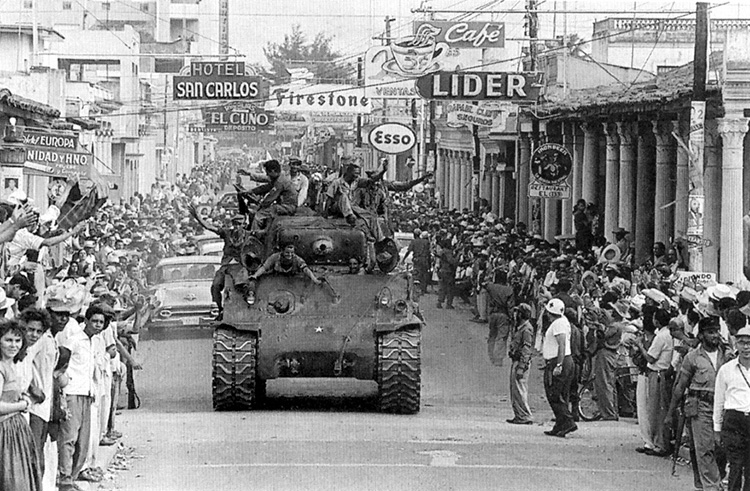
The International Marxist Tendency, the tendency historically led by Ted Grant, today by Alan Woods and Rob Sewell, say some similar things from a more formally Trotskyist-sounding standpoint:
“Clearly, there was a genuine component to the protest in San Antonio (something that President Díaz-Canel himself later recognised) that grew out of the real hardship facing the people. The slogans that brought hundreds of people out to the streets in San Antonio were ‘we want vaccines’ and the demand for a solution to their immediate problems, which was put to the local authorities.
“But we would be blind if we did not see that there was also another factor. For days there has been an intense campaign orchestrated by counter-revolutionary elements on social networks under the slogan #SOSCuba. The campaign has two aims. One, try to create a social uprising, protests in the streets, through the dissemination of exaggerated, biased or directly false information (for example about the health situation in Matanzas, the area most affected by the pandemic) and the abstract call to protest in the streets. Two, with the excuse of the health emergency situation (partly real, partly exaggerated) to promote the idea of the need for a ‘humanitarian intervention’ by foreign powers to ‘help Cuba’.
The hypocrisy of the personalities (artists, musicians, etc.) who have promoted the campaign is incredible. Where was the campaign in favour of an ‘international intervention’ in Brazil, or Peru, or Ecuador – all countries that have suffered Covid-19 mortality rates 10, 20 or 50 times higher than those of Cuba?
This hypocritical campaign is a clear attempt to justify a foreign imperialist intervention against the revolution, under the cover of humanitarian aid. We have seen this before, in Libya, in Venezuela, in Iraq. We know what is really behind these so-called ‘humanitarian interventions’: imperialism. We could not imagine a greater degree of cynicism. The same powers that apply a blockade against Cuba, which prevent it from trading on the world market, from purchasing medicines and supplies to manufacture them, are now demanding that the Cuban government open a ‘humanitarian corridor’!”
https://www.marxist.com/protests-in-cuba-defend-the-revolution.htm?fbclid=IwAR1aj6qHd-RGAOF09_dAITjCqMUbpi2vSaMO4E3b7FGEe0ayfomIGZT3JaQ
It should be remembered that IMT supported the “Libyan Revolution”, an imperialist intervention similar to that which it now criticizes (see The Libyan Issue and IMT Revisionism). They draw some necessary conclusions, with which we wholeheartedly concur:
“Faced with this situation, what position should we as revolutionaries take? In the first place, it must be clearly explained that the protests called by Luis Manuel Otero Alcántara and other related elements are openly counter-revolutionary, although they try to capitalise on a sense of malaise that emanates from the very difficult objective conditions. The problems and hardships are real and genuine. But the protests, under the slogan “Homeland and Life” and “Down with the dictatorship”, are counter-revolutionary. There are confused elements participating, to be sure. But in the midst of the confusion, it is inevitable that those who dominate these protests are, from a political point of view, counter-revolutionary. They are organised, motivated and have clear objectives. It is therefore necessary to oppose them and to defend the revolution. If those who promote these protests (and their mentors in Washington) achieve their goal – the overthrow of the revolution – the economic and health problems suffered by the Cuban working class will not be solved, but on the contrary, will be aggravated. You only have to look at Bolsonaro’s Brazil or neighboring Haiti to convince yourself of this.”
ibid
Their article concludes with these slogans, that are excellent as far as they go:
“Defend the Cuban revolution!
Down with the imperialist blockade – hands off Cuba!
No to capitalist restoration – for more socialism!
Against the bureaucracy – for workers’ democracy and workers’ control!”
ibid
The main disagreement we have with this is that it does not explicitly call for a proletarian political revolution and a regime of soviets. Though such demands do point in that direction.
This article has rightly been praised on the international left as embodying a socialist perspective. Including by leftists who have not been willing to draw a clear line against the counterrevolution. It’s a pity that the IMT comrades have not so far taken up the polemical cudgels against such people on the left. Indeed, they might tend to regard such a polemic as ‘sectarian’. But it is necessary because those who blur the class line on these questions also have influence, can mislead workers in Cuba and outside and thereby pose dangers to the working class and the revolution, and must therefore be challenged. However, we could not expect a very principled position from the IMT, which supported the same type of hybrid war that imperialism has now waged against Cuba, when the CIA launched protests against imperialist opponent governments in Libya, Syria, Hong Kong, Belarus.
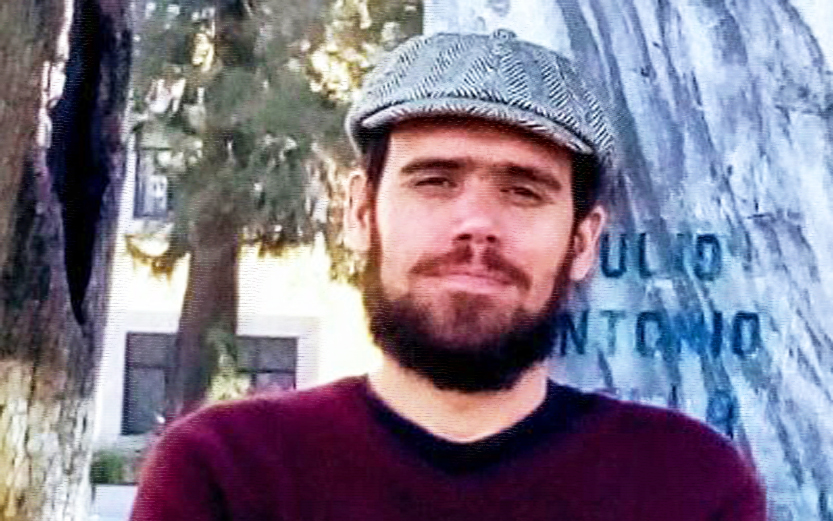
For instance, there is a petition with many signatures being circulated by the supporters of the Cliffite International Socialist Tendency titled “Release Frank García Hernández and His Comrades” that says that the signatories are:
“… very concerned to learn of the arrest during a march of protest in Havana on 11 July of Frank García Hernández, Cuban historian and Marxist, Leonardo Romero Negrín, young socialist studying physics at the University of Havana, Maykel González Vivero, director of Tremenda Nota and Marcos Antonio Pérez Fernández, pre-university student. Frank García Hernández is an important scholar has achieved a worldwide reputation for his work on reevaluating the history of the Cuban left and organising an international congress on Trotsky in Havana in 2019.
We call for the unconditional release of Frank and all his comrades and for respect for the democratic rights of all the Cuban people.”
https://socialistworkersleague.org/2021/07/14/release-frank-garcia-hernandez-and-his-comrades/?fbclid=IwAR16I3Mr_g-4-NX5eITGgJpAnxoWdihViautwBw_rvyrVBzbBhqYxrEf8nk#
The petition does not elaborate on which demonstration García Hernández and his comrades were marching on. But a clue is to be found in a statement of the US SEP (World Socialist Web Site) that also demands that García Hernández be released:
“The Socialist Equality Party (US) demands the immediate release of Frank García Hernández from house arrest by the Cuban government. García Hernández, a self-avowed Marxist associated with the Comunistas Blog collective, was arrested Sunday during historic protests against the economic crisis and the worsening of the COVID-19 pandemic.”
https://www.wsws.org/en/articles/2021/07/16/cuba-j16.html
From this, it becomes clear that the demonstration they were arrested on was the one organised by the pro-gusano forces under the slogan “Homeland and Life” calling for ‘humanitarian intervention”, who the La Tiza group accurately said are
“a part that has succumbed, that has surrendered to the agenda of those who have always tried precisely to surrender them out of hunger and need, and who are willing to renounce … sovereignty and socialism.”
op-cit, see earlier
This is a serious, strategic error by these leftists, in keeping with the politics of the Cliff tendency, who they are obviously allied with, which surrendered to anti-Communism as long ago as the Korean war in 1950. While we are for upholding the norms of workers democracy and are not in favour of suppressing their views through imprisonment or worse, nevertheless in marching with those mobilised by the gusanos against the Cuban government they are committing a serious, strategic error, and their activities should be condemned.
The Cliff tendency always denied that there had been any kind of social revolution in Cuba, defining Cuba as ‘state capitalist’, and therefore refused to defend it against imperialism. Indeed, they celebrated the 1991 counterrevolutionary collapse of Stalinism in the USSR with the headline “Communism has collapsed. It should have every socialist rejoicing.” It would probably be wishful thinking for them to improve on this appalling position over a reactionary movement in Cuba.
Flowing from this, we get the absurdity of the Cliffite petition citing remarks by Rosa Luxemburg from the early years of the Russian Revolution:
“Freedom only for the supporters of the government, only for the members of one party — however numerous they may be — is no freedom at all. Freedom is always and exclusively freedom for the one who thinks differently. Not because of any fanatical concept of ‘justice’ but because all that is instructive, wholesome and purifying in political freedom depends on this essential characteristic, and its effectiveness vanishes when ‘freedom’ becomes a special privilege.”
op-cit, https://socialistworkersleague.org/
Rosa Luxemburg was mistaken when she wrote these remarks upbraiding the Bolsheviks for allegedly violating workers democracy in 1918. Even though she was a conscious Marxist and internationalist, she appeared not to understand the murderous nature of the opposition that the Bolsheviks were facing and the treachery of even their social-democratic opponents within the workers movement who were prepared to ally with such murderous forces. Tragically, Rosa herself fell victim to equivalent murderous forces in Germany in January 1919, which puts a somewhat different perspective on her criticism.
But how much more bizarre to say this in Cuba today. Who is it aimed at? The Cuban government? That would seem to imply that the Cuban regime can be in some way equated with Lenin’s consciously revolutionary and internationalist Soviet government in 1918. But of course, they do not believe that. They are using Rosa Luxemburg’s error to curry favour with any social democratic elements in the gusano-led movement for their vision of ‘socialism’ without any nasty repression of bourgeois forces that claim to be ‘democratic’. But they are likely to be onto a loser there, as the gusano movement will obviously be dominated by forces far to the right of that kind of social-democratic utopianism. It is not only opportunism: it is suicidal opportunism for any left-wing, pro-socialist types to engage in blocs with the gusanos.
The same is true of David North’s tendency, who despite their sometime pretentions of orthodox Trotskyism, always denied that the Cuban revolution created any kind of workers’ state. They follow in the footsteps of Gerry Healy who in the 1960s asserted that the Cuban bourgeoisie was still in power but was somehow ‘weak’. At the Healyites 1966 London Conference of the “International Committee of the Fourth International” the founder of the Spartacists, James Robertson, was unceremoniously thrown out after mocking Healy’s position on Cuba, for quipping that “If the Cuban bourgeoisie is indeed ‘weak,’ as the I.C. affirms, one can only observe that it must be tired from its long swim to Miami, FLA [Florida]”. It is clear from more recent writing that the WSWS still rejects the idea that Cuba is any kind of workers state, and therefore deny that there is any revolution to defend. Therefore, it is completely logical that their propaganda around this should resemble that of the Cliffites, who they otherwise denounce as the worst renegades from Trotskyism.
Defence of Cuba, as one of only two surviving deformed workers’ states (the other being North Korea) is still a central responsibility of genuine Trotskyists, fighting to re-create the Fourth International as a mass revolutionary force. We in the Liaison Committee for the Fourth International seek political debate and regroupment with revolutionary-inclined forces around these basic revolutionary positions as the key means of advancing the worldwide struggle for socialism.

